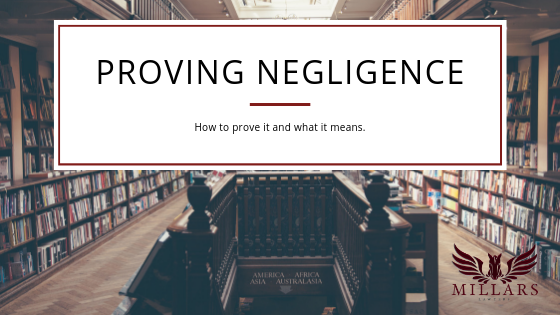The most frequent question we receive from potential clients after they provide us with the background of how their injuries occurred is ‘whether they have a case or not.’ Sometimes, giving a simple yes or no answer is a lot more complicated as we may need to dig deeper before providing such an important answer to our prospective clients.
For example, if the injury is caused as a result of a medical procedure, we may need to review medical records and reach out to our medical experts for professional opinions prior to providing guidance to our prospective clients.
In a personal injury claim, it is our duty to prove negligence.
First, there must be a presence of a duty of care from the wrongdoer. For example, a doctor has a duty of care to his patient while road users owe a duty of care to others on the road.
Second, we must then prove that the at-fault party breached their duty of care.
Third, the breach of the at-fault party’s duty of care must have caused the personal injury sustained by the victim. The law of causation is a forever changing theory, and Plaintiff lawyers continue to advocate in favour of a question that incorporates the phrase, ‘caused or contributed to’ meaning that the incident in question caused or at least contributed to the victim’s injuries. Whereas, defence lawyers argue in favour of ‘but for’ or on the balance of probabilities. These imply that the injuries sustained by the victim were probably not caused by the incident in question. The law of causation is the most important prong in proving negligence.
The final element in proving negligence is proof of damages. The claimant must establish that the breach of the duty of care leads to the personal injuries sustained by the claimant and his or her quality of life.
Making a claim for personal injuries can be an exhausting and extremely difficult task for victims. To ensure your claim is well represented, contact our experts today at (519) 657-1LAW for a FREE legal consultation.
By: Michael Johnson



